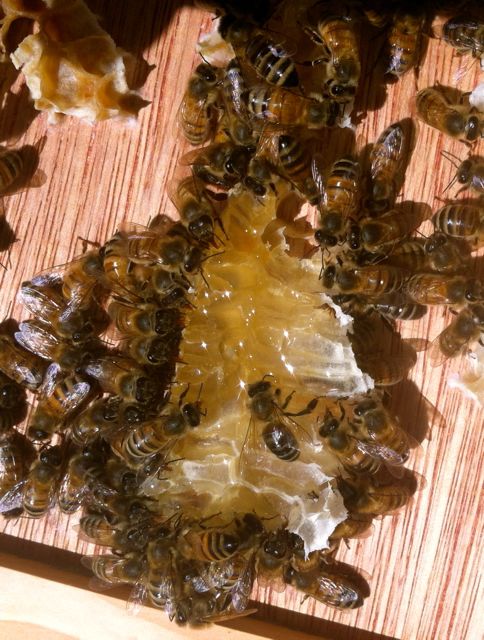
One of the things one learns in a monastery is that each day and each experience and each person in our lives is playing a role in our conversion into the person God is longing for us to become.
That said, the response we have to these influences is still a choice. One can fold inward, isolate, become paranoid or angry or delusional in our solitude, or we can chose to see challenges as an opportunity for self-compassion. And the odd thing is that when we are compassionate with ourselves, we become compassionate with those around us. When we see our own fears, we see the fears of others more clearly. When we see our own pride, we can have compassion about the pride of others. When we can access our own regrets or the grief of betrayals, then we can have compassion not only for those around us who experience regret or betrayal, we can even be compassionate with those who perpetrate betrayal or inspire regret.
The bees on the roof of our cathedral are communal. This is why the Mormons, who survived (though perhaps just barely) the trip across the wilderness, used the bee hive as their main symbol of being church together. The head-honcho’s house in Salt Lake City is named for a beehive, and the cupola on the top of his house is an actual carved beehive in gold leaf. And the great canopy over the altar of confession in Saint Peter’s Basilica in Rome is, if you look carefully between the leaves and vines in gold leave, covered with carved bees – only visible a few inches away.
We have made the Last Supper into a myriad of liturgies over the centuries and each reflects the tastes of those who promote and design them. But in the end, if we were to excavate the liturgies, we would find a group of scared, hopeful, grief-stricken, and somehow wondering men and women gathering in a darkened upper room (away from the street, away from windows and doors) in order to be together one last time. And knowing that this would be the one last meal together, the one thing Jesus tries one last time to teach them is humility. He chastises false, super-humility. He then returns to teaching real, kind, gentle humility with a towel and a bowl of warm water, on his knees.
What would it be like for us to drop our self-judgement in such a way that self-compassion were to invite our own ability to pour our own bowl of warm water and soak our tired feet? And then what would it be like to pour some lavender oil in the hot water? And some sea salt? And what if we were able to sit still long enough for the heat to move up our legs and into our exhausted hearts? Might not our next impulse be to pour a symbolic foot-bath for someone else in the form of conversation, a gentle touch, a kind look- the teenager who is on our last nerve? The spouse who is not listening. The mother in law whose demands seem incessant? The old lady at the checkout line bagging groceries too slowly for our hurried, frantic, caffeinated schedule?
What if peace is not just how we are with others, but how we are with ourselves in the presence of our loving, kind, longing God? And if we all gather around that love the way bees gather around honey, might that not change things?

